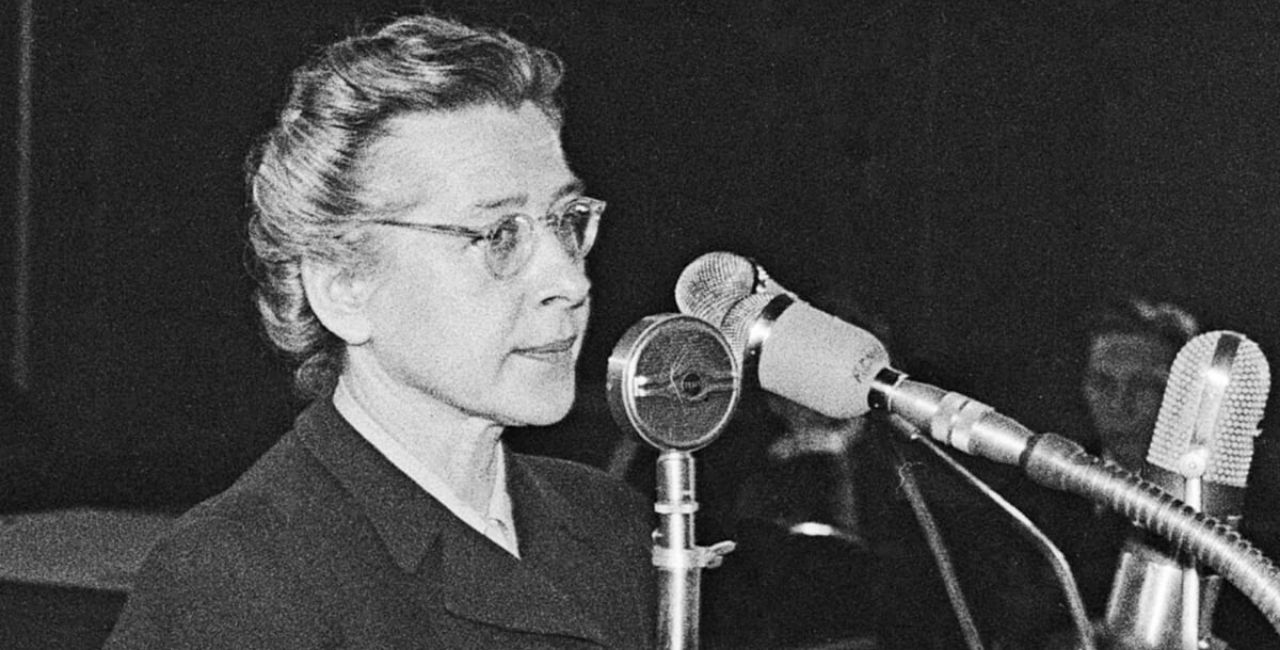Milada Horáková (25th December 1901– 27th June 1950) was a Czechoslovak politician who was executed for alleged conspiracy and treason during the communist political trials of the 1950s.
Milada Horáková was born in 1901, in what was then still the Austrian-Hungarian Habsburg Empire, into a middle-class family. She managed to study law at a time when very few women did and became active in women’s emancipation movements.
Czechoslovakia, which emerged in 1918 from the Habsburg Empire, allowed women’s vote as early as 1920, ahead of many other European states, thanks to Senator Františka Plamínková, the founder of the Women’s National Council for whom Horáková started working in 1924.
From 1927, she worked in the social welfare department, promoting reforms aimed at women’s equality. During World War II, she entered the resistance movement against the Nazis, along with her husband, but both were arrested in August 1941.
Under the Nazi Occupation: resistance and incarceration
Shortly before the Occupation, she was forced to leave the Prague City Council. During the Occupation she joined the resistance group We Remain Faithful, finding secret housing for illegals and passing on information to an espionage agency. On August 2, 1940, she and her husband were arrested and imprisoned in Prague.
After the governor of the Protectorate of Bohemia and Moravia, Reinhard Heydrich was assassinated in 1942, she was transferred to the Terezín concentration camp in central Bohemia. There, she met up with Plamínkova again, though the former senator was executed in 1942.
Horáková’s husband had been sent to Terezín, too, but the couple was not allowed to meet. In October of 1944, she was sentenced to the death penalty, but a Dresden court changed the decision to eight years’ incarceration. When the US army liberated Horáková, she was in a concentration camp in Germany.
Back in politics from 1945 to the Communist coup of 1948
In 1945 she was reunited with her husband. Czechoslovak democratic President Edvard Beneš convinced her to return to the Czechoslovak National Socialist Party, and she became a member of Parliament in 1946, a post she would hold until the February 1948 Communist coup.
After joining the Union of Friends of the Soviet Union, Horáková realized that Czechoslovakia had to solidify its relations with the West in order to fight against Joseph Stalin. She also chaired the Council of Czechoslovak Women and served as deputy chairperson for the Union of Liberated Political Prisoners.
As the Communists gained power in February of 1948, Horáková rallied citizens to support Beneš, but on February 25, 1948, the day the Communists took over, she was expelled from all organizations.
The arrest and her trial
Although Horáková had the opportunity to flee abroad, she decided to remain in Czechoslovakia and continue to support democratic ideals. While working with illegal political organizations and maintaining contacts with exiled politicians, she was arrested during September of 1949 on a fabricated charge of conspiring to overthrow the totalitarian government.
Her trial began on May 31, 1950.
Horáková, who spent four years in camps and prisons, managed to represent herself at her own trial, and therefore avoided the death penalty. She returned to her work in 1945 and agreed to run as a member of parliament for the Czech National Socialist Party.
She quickly became a target of the communists for her outspoken criticism of their agenda to curb democratic freedom in post-war Czechoslovakia.
She gave her final speech on June 8, 1950, during her trial, in which she refused accusations of treason with strong determination. Here is a segment of her speech in this video in Czech:
She was eventually sentenced to death. On June 27, she was given 20 minutes to see her sister and her daughter before she was hanged.
She was cleared of all accusations posthumously in 1991, when she was awarded by President Václav Havel the Order of Tomáš Garrigue Masaryk, the highest state honor made for outstanding contributions to the development of democracy, humanity and human rights
In 2017, an English-language movie was made about her life by David Mrnka:
-
NEWSLETTER
Subscribe for our daily news





